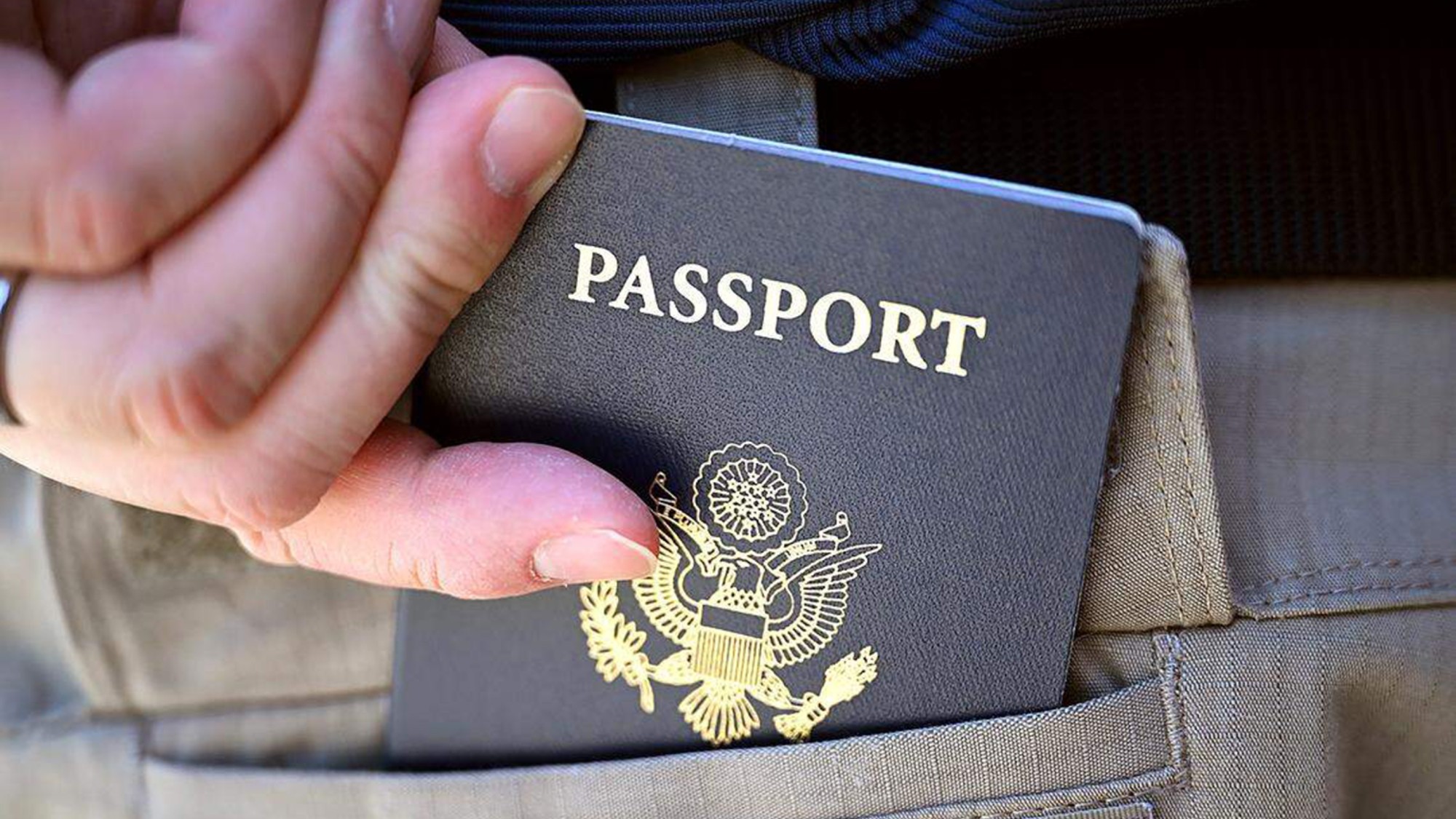The origin and evolution of the Kamala Harris coconut meme
You think it just fell out of a coconut tree?


A free daily email with the biggest news stories of the day – and the best features from TheWeek.com
You are now subscribed
Your newsletter sign-up was successful
Vice President Kamala Harris is having a moment. Following President Joe Biden's impromptu endorsement of Harris to replace him on the Democratic ticket, her online enthusiasts have been eager to show where they stand. Enter the coconut tree meme. What began as a viral clip of the vice president that Republicans enjoyed mocking has since evolved into a symbol of support for Harris in the upcoming presidential election.
Where did the coconut meme come from?
In May 2023, Vice President Harris gave remarks during a swearing-in ceremony for commissioners of the White House Initiative on Advancing Educational Equity, Excellence, and Economic Opportunity for Hispanics. In the speech, she touched upon ways to support Hispanic students and how that should extend to their families and communities "because none of us just live in a silo." "Everything is in context," Harris said before sharing the viral anecdote about her late mother, Shyamala Gopalan.
"My mother used to — she would give us a hard time sometimes, and she would say to us, 'I don't know what's wrong with you young people. You think you just fell out of a coconut tree?'" Harris said with her signature laugh. "You exist in the context of all in which you live and what came before you."
The Week
Escape your echo chamber. Get the facts behind the news, plus analysis from multiple perspectives.

Sign up for The Week's Free Newsletters
From our morning news briefing to a weekly Good News Newsletter, get the best of The Week delivered directly to your inbox.
From our morning news briefing to a weekly Good News Newsletter, get the best of The Week delivered directly to your inbox.
Clips of the speech began making the rounds on social media right away, but the coconut tree statement only went viral in February of this year. Republicans added the soundbite to a list of clips they used to ridicule Harris, claiming that she appeared drunk or high. "The RNC wanted people to think the coconut tree incident was cringe," said The Washington Post. Instead, it was "just odd enough to bend the line between irony and earnestness, so that those who latched on to it weren't sure whether they were laughing at Harris or laughing with her."
What has the meme come to symbolize?
In the tense weeks between President Biden's heavily panned debate performance and his announcement that he would not seek reelection after all, the coconut meme reemerged as a symbol for Democrats rallying behind Kamala Harris to become the party's new nominee. Shortly after Biden endorsed her as his replacement, Colorado Gov. Jared Polis posted on X with just three emojis: a coconut, a palm tree and an American flag. EMILYs List, the PAC that works to help elect Democratic women, endorsed Harris in an X post and added the tree and coconut to its username on the platform. Sen. Brian Schatz of Hawaii (D) joined the fray with a picture of himself climbing up a coconut tree alongside the caption, "Madam Vice President, we are ready to help."
Since then, the meme has taken on a life of its own, remixed into popular pop songs like Charli XCX's "Von Dutch" and Britney Spears' "Gimme More" and featured in video game parodies. Google searches for "coconut tree" spiked in the U.S. in early July. Some of Harris' online supporters even describe themselves as "coconut-pilled," similar to how people who fall down right-wing internet rabbit holes have been dubbed "red-pilled."
Harris' jovial persona has bolstered the meme's popularity, as she brings "an energy that's in stark contrast to President Biden and former President Donald Trump," NPR said. "We want something to laugh at and laugh with. And that's what Kamala does," said Rebecca Jennings, a senior correspondent at Vox covering internet culture, to NPR. Harris' memeification is a break in the "drudgery of what everyone thought this election was going to be."
A free daily email with the biggest news stories of the day – and the best features from TheWeek.com
Her popularity online may also help give the Democrats "new prominence with young people" who were "hesitant to vote for Biden again due to his climate policies, support of Israel's war in Gaza, mishandling of the ongoing pandemic, and signing a bill that could ban TikTok," Taylor Lorenz said in The Washington Post. The coconut meme has gained traction "because it's the kind of motherly advice meets therapy-speak the internet is obsessed with," said Vogue writer José Criales-Unzueta. "It's the kind of thing we hear from our mothers and grandmothers over and over and over until we eventually embrace it and internalize it."
Theara Coleman has worked as a staff writer at The Week since September 2022. She frequently writes about technology, education, literature and general news. She was previously a contributing writer and assistant editor at Honeysuckle Magazine, where she covered racial politics and cannabis industry news.
-
 Bad Bunny’s Super Bowl: A win for unity
Bad Bunny’s Super Bowl: A win for unityFeature The global superstar's halftime show was a celebration for everyone to enjoy
-
 Book reviews: ‘Bonfire of the Murdochs’ and ‘The Typewriter and the Guillotine’
Book reviews: ‘Bonfire of the Murdochs’ and ‘The Typewriter and the Guillotine’Feature New insights into the Murdoch family’s turmoil and a renowned journalist’s time in pre-World War II Paris
-
 Witkoff and Kushner tackle Ukraine, Iran in Geneva
Witkoff and Kushner tackle Ukraine, Iran in GenevaSpeed Read Steve Witkoff and Jared Kushner held negotiations aimed at securing a nuclear deal with Iran and an end to Russia’s war in Ukraine
-
 ‘The censorious effect is the same, even if deployed covertly’
‘The censorious effect is the same, even if deployed covertly’Instant Opinion Opinion, comment and editorials of the day
-
 How ‘Manchesterism’ could change the UK
How ‘Manchesterism’ could change the UKThe Explainer The idea involves shifting a centralized government to more local powers
-
 ‘Dark woke’: what it means and how it might help Democrats
‘Dark woke’: what it means and how it might help DemocratsThe Explainer Some Democrats are embracing crasser rhetoric, respectability be damned
-
 San Francisco tackles affordability problems with free child care
San Francisco tackles affordability problems with free child careThe Explainer The free child care will be offered to thousands of families in the city
-
 The Mint’s 250th anniversary coins face a whitewashing controversy
The Mint’s 250th anniversary coins face a whitewashing controversyThe Explainer The designs omitted several notable moments for civil rights and women’s rights
-
 US citizens are carrying passports amid ICE fears
US citizens are carrying passports amid ICE fearsThe Explainer ‘You do what you have to do to avoid problems,’ one person told The Guardian
-
 Inside Minnesota’s extensive fraud schemes
Inside Minnesota’s extensive fraud schemesThe Explainer The fraud allegedly goes back to the Covid-19 pandemic
-
 Trump wants to build out AI with a new ‘Tech Force’
Trump wants to build out AI with a new ‘Tech Force’The Explainer The administration is looking to add roughly 1,000 jobs
